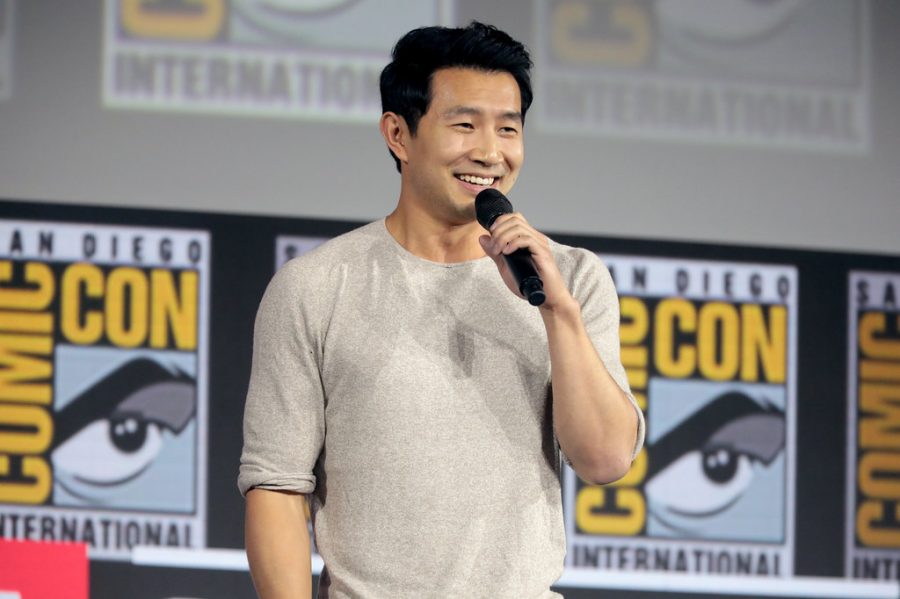Marvel’s underdog ‘Shang-Chi’ speaks to underrepresented communities
September 23, 2021
“Shang-Chi and the Legend of the Ten Rings” opened in theaters Sept. 3 to a flood of moviegoers, many of whom were stepping foot into a theatre for the first time in over a year. The 25th installation in the Marvel Cinematic Universe, “Shang-Chi” was much-anticipated not only for comic buffs and cinephiles but also for Asian audiences across the country. Although today the film boasts a revenue of over $320 million and a collection of overwhelmingly positive reviews, the journey from production to premiere for Marvel’s first Asian-led film was not paved without difficulty.
The film industry harbors a long history of excluding Asian stories and Asian creatives from its productions, with little more than a slew of racist caricatures to show for the handful of instances when Hollywood has invited Asian influences into its studios.
“In 2010, the ‘Last Airbender’ movie came out. Eight-year-old me was so psyched for this movie. I watched it, and I realized, ‘No one in this movie looks like how they’re supposed to,’” said Luke Liu, a second-year business administration major. “That was my first experience with white-washing, and it was done so glaringly. They had the money to cast it correctly, but they just chose not to.”
Exclusion and misrepresentation of Asians and Asian Americans runs so rampant in filmmaking that “Shang-Chi” is only the third major Asian-led film, after 1993’s “Joy Luck Club” and 2018’s “Crazy Rich Asians,” to come from the American film industry. Other supposedly “Asian” films, such as 2020’s live-action “Mulan” remake and the aforementioned “Avatar: The Last Airbender” adaptation, hide the executive power of white directors, writers and producers behind their pitches for diversity.
In the weeks leading up to the film’s premiere, fans voiced concerns over Disney and Marvel Studios’ apparent lack of official promotion for the film, even crediting “Shang-Chi” actor Simu Liu and other cast members with sharing a bulk of the film’s promotional content themselves.
Adding fire to the flames of frustrated fans, Disney CEO Bob Chapek referred to “Shang-Chi” as “an interesting experiment” during the Disney quarterly earnings call. Liu himself took to Twitter and Instagram in response.
“We are not an experiment. We are the underdog; the underestimated,” he wrote. “We are the ceiling-breakers. We are the celebration of culture and joy that will persevere after an embattled year.”
“Shang-Chi” and Asian audiences encounter an unimpressive track record within the Marvel film catalogue as well. White western characters, storylines and storytellers have dominated the superhero franchise, and fans are eager for more diversity both on screen and behind the camera.
“I’m thinking of that one scene in ‘Avengers’ when they’re circling around the whole team, and it’s just literally white people,” said Kelsey Zhen, a second-year combined media and screen studies and communications major.
Starring an all-Asian leading cast, Japanese-American Destin Daniel Cretton in the director’s chair and Chinese American David Callaham and Cretton in the writers’ room, many fans see “Shang-Chi” as a step in the right direction toward achieving greater diversity both on and off-screen, where it has long been absent.
“I really wanted to be a film major,” said Deefah He, a second-year combined business administration and design major. “But my dad said, ‘You have to see that in society you’re an East Asian woman. It would be very hard for you to make it big as a director.’”
As Marvel’s first Asian-led film and fully theatrical release since the onset of the COVID-19 pandemic, “Shang-Chi” is paving the way for the studio’s much-anticipated “Eternals,” directed by the Oscar-winning Chloé Zhao and starring Gemma Chan. For Asian viewers like Zhen, this momentum is not only a good omen for the future of diverse representation but also for the expansion of opportunities for Asian filmmakers in an industry that has historically excluded them.
“Seeing people that you can relate to because they’re also Asian gives you encouragement to consider film as something you could enter in the future — not just as an actor but also behind-the-scenes,” Zhen said.
Emerging from an adverse year of racist scapegoating that has tried the spirit of Asian Americans, “Shang-Chi” is a testament to the community’s resilience and promise. The care and respect with which “Shang-Chi’s” filmmakers incorporate Asian, specifically Chinese, culture and history into all levels of its storytelling and worldbuilding is a breath of fresh air for Asian fans.
“They spoke in Mandarin for a good portion of the movie. I didn’t think a franchise like Marvel would take that risk,” He said. “I felt very proud.”
“Shang-Chi” is a pioneer, setting a precedent for Hollywood to produce more stories that reflect Asian culture and voices with depth and integrity. Entrenched in a history of denying Asian audiences the right to see themselves reflected in film, major studios often overlook the significance of diverse storytelling. But in a post-“Shang-Chi” world, Asian American audiences cannot help but reflect upon the identity-affirming shock of Marvel’s latest film.
“If I could’ve seen “Shang-Chi” when I was 10 or 12 years old, seeing someone like yourself on the big-screen means a lot more than you would think,” Liu said. “Superheroes represent such a great aspect of humanity, and they show what you can do and what you can achieve.”
Storytelling is the articulation of the human experience. As “Shang-Chi” joins the ranks of Marvel’s superhero lineup, the herald of the franchise’s increasingly diverse future, Asian Americans look to the beginnings of an industry and a world beyond it that are ready to embrace their identities, their history and their potential.







